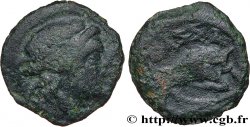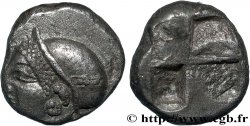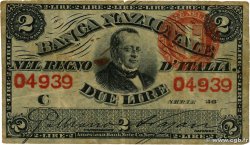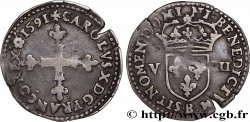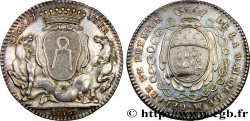Назад 1/1
E-auction 37-13834 - bga_264460 - MASSALIA - MARSEILLES Litra du type du trésor d'Auriol à la tête d'Athéna coiffé du casque attique
Чтобы принять участие в торгах, вы должны войти в систему и стать подтвержденным участником аукциона. Войдите, чтобы сделать ставку. Ваш аккаунт будет подтвержден в течение 48 часов. Не ждите до закрытия торгов, чтобы зарегистрироваться.Сделав ставку на данный товар, вы вступаете в юридическое соглашение на покупку выбранного товара и нажатием кнопки «Сделать ставку» подтверждаете принятие вами условий интернет-аукционов cgb.fr.
Ставка может бить сделана только в полном эквиваленте евро. Торги закроются согласно времени, указанному в описании товара, все ставки, сделанные после закрытия торгов, учитываться не будут. Не следует откладывать предложение вашей ставки до последнего момента, так как система может не успеть обработать вашу заявку, и ваша ставка не будет принята. Более детальную информацию вы найдёте здесь: FAQ по интернет-аукционам.
БЕСПЛАТНО.
БЕСПЛАТНО.
| Оценить : | 125 € |
| Цена : | 33 € |
| Максимальная предлагаемая цена : | 40 € |
| Конец торгов : | 30 December 2013 15:24:30 |
| Участников : | 4 Участников |
Тип Litra du type du trésor d'Auriol à la tête d'Athéna coiffé du casque attique
Дата: c. 475-460 AC.
Монетный двор / Город: Marseille (13)
Металл: silver
Диаметр: 9 mm
Вес: 0,73 g.
Редкость: R2
Комментарии о состоянии
Flan court et irrégulier, avec un métal fortement cristallisé. Bel avers avec le profil bien net, mais revers confus. Patine grise foncé
Ссылки в каталоге: :
Происхождение:
Exemplaire de la collection G. S. de Marseille
Лицевая сторона
Аверс: легенда: ANÉPIGRAPHE.
Аверс: описание: Tête d'Athéna à gauche, coiffée du casque attique.
Обратная сторона
Реверс: легенда: ANÉPIGRAPHE.
Реверс: Описание: Carré creux irrégulier.
Комментарий
Cet exemplaire est comparable au bga_255437 et au OBA-Ea du Dicomon, mais il reste très proche du OBB-1.
Cette monnaie s’intègre dans le groupe EaI, répertorié par une seule monnaie dans l’ouvrage de Futwängler.
Le Dicomon indique des provenances dans le trésor d’Auriol, au Baou-Roux, à Cavaillon et dans le “trésor de Provence”.
Dans le RN 2008, page 243, J.-A. Chevillon remet en doute l’appartenance de la monnaie illustrée par Futwängler au trésor d’Auriol ; il date cette monnaie des années 475-460, soit après l’enfouissement du trésor !.
Cette monnaie s’intègre dans le groupe EaI, répertorié par une seule monnaie dans l’ouvrage de Futwängler.
Le Dicomon indique des provenances dans le trésor d’Auriol, au Baou-Roux, à Cavaillon et dans le “trésor de Provence”.
Dans le RN 2008, page 243, J.-A. Chevillon remet en doute l’appartenance de la monnaie illustrée par Futwängler au trésor d’Auriol ; il date cette monnaie des années 475-460, soit après l’enfouissement du trésor !.







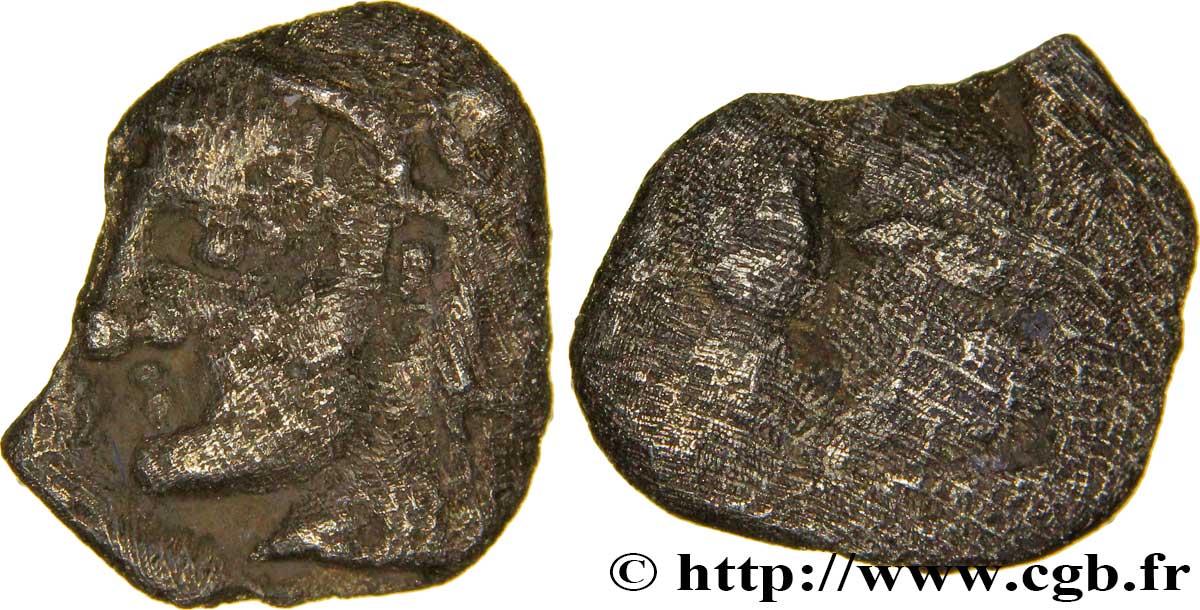
 Cообщить об ошибке
Cообщить об ошибке Распечатать страницу
Распечатать страницу Отправить мой выбор
Отправить мой выбор Задать вопрос
Задать вопрос Consign / sell
Consign / sell
 Информация
Информация

